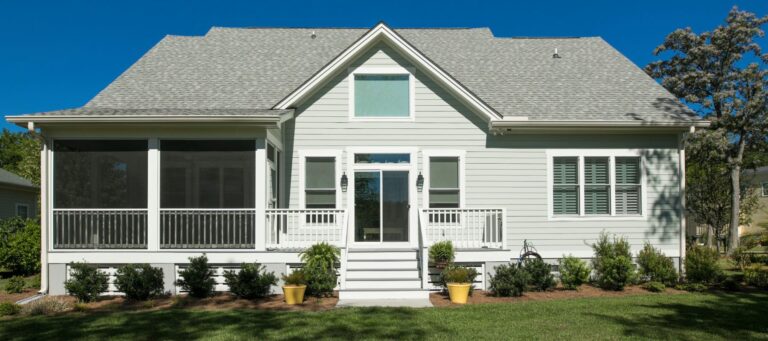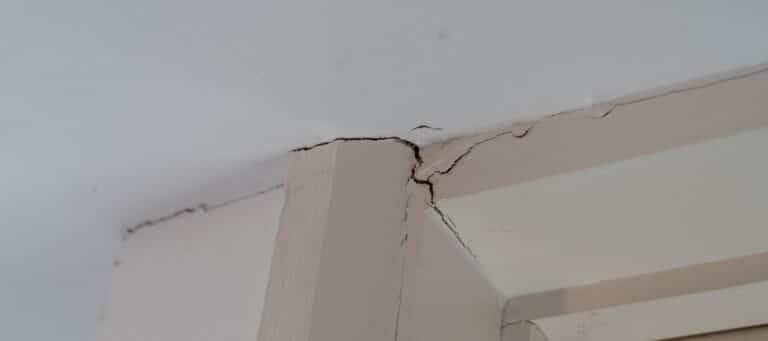What’s The Difference Between Sinking And Settling?
Your home’s foundation does more than just hold up walls — it supports your entire structure, protects against shifting soil and plays a key role in keeping moisture and energy costs under control. When that foundation starts to move, even slightly, it raises an important question: Is my home just settling — or is it actually sinking?
At G.L. Hunt Foundation Repair, we hear this concern often from homeowners throughout the Dallas-Fort Worth area. Knowing the difference between natural foundation settling and serious foundation sinking can mean the difference between peace of mind and a costly structural repair down the road.
In this article, we’ll break down what settling and sinking really mean, why they happen, how serious they are and what’s common here in Texas soil.
What Is Normal House Settling?
Settling is a natural process that occurs in virtually every home. As a new house is constructed and begins to bear weight, the soil beneath it compresses and adjusts. This adjustment — especially in the first few years — is called settling.
In most cases, foundation settling results in:
-
Hairline cracks (usually vertical) in drywall or plaster
-
Slightly misaligned doors or windows (early on)
-
Cosmetic changes that stabilize over time
This is especially common in new construction. As long as the cracks aren’t growing or accompanied by other structural symptoms (like sloping floors), settling isn’t a cause for alarm. Still, a foundation expert can provide reassurance and catch potential problems early.
What Is Foundation Sinking?
Sinking, unlike settling, is a sign of structural distress. It means part (or all) of your foundation is dropping lower than it should, often due to unstable or eroding soil beneath the slab or piers.
Sinking foundations are typically caused by:
-
Expansive clay soils (very common in DFW)
-
Poor soil compaction before construction
-
Water intrusion or drainage issues
-
Plumbing leaks or tree root interference
Unlike harmless settling, foundation sinking gets worse over time and leads to uneven support beneath your home. If ignored, it can cause major structural damage — and much higher repair costs later.
Settling vs Sinking: The Key Differences
Think of settling as your home “getting comfortable,” while sinking is a red flag that the foundation is failing in one or more areas.
| Feature | Settling | Sinking |
|---|---|---|
| When It Happens | Typically within first few years of construction | Can occur at any time |
| Cause | Normal soil compression | Soil erosion, moisture problems, poor drainage, etc. |
| Severity | Minor, mostly cosmetic | Serious, often structural |
| Signs | Hairline cracks, minor shifts | Wide/stair-step cracks, sloping floors, misaligned frames |
| Progression | Stabilizes over time | Worsens without repair |
Why Foundation Movement Is Common In DFW
The Dallas-Fort Worth region is notorious for foundation issues — and it’s largely due to our expansive clay soils. When clay gets wet, it swells. When it dries out, it shrinks. This constant expansion and contraction puts enormous pressure on concrete foundations, especially if drainage around the home isn’t properly managed.
On top of that, hot Texas summers and flash flood conditions create moisture extremes that stress even well-built foundations. Combined with occasional poor construction practices or shallow footings, these soil issues often lead to uneven movement — which may begin as settling but eventually becomes sinking.
Is It Settling Or Sinking? When To Call A Pro
Because early signs of both settling and sinking can look similar, the best course of action is always to have your foundation professionally inspected. A trained expert can distinguish between harmless cosmetic settling and movement that requires stabilization.
Watch for:
-
Cracks getting wider or longer over time
-
Doors or windows that progressively become harder to open
-
Floors beginning to slope or feel uneven
-
Exterior brick cracking in stair-step patterns
-
Gaps forming between walls, ceilings, or baseboards
Even if these issues seem minor, it’s better to get clarity than wait for a larger problem to develop.
Why You Shouldn’t Ignore A Sinking Foundation
It’s easy to brush off minor cracks or slight floor sloping as harmless, but when it comes to foundation sinking, procrastination can be costly. What begins as a small issue can escalate quickly, affecting your home’s stability, safety and even resale value.
Here are some of the most serious consequences of neglecting a sinking foundation:
- Structural damage to walls, floors and ceilings
- Water intrusion through basement or crawl space cracks
- Increased repair costs the longer the issue is left unaddressed
- Reduced home value and potential insurance complications
- Safety risks for occupants if structural integrity is compromised
Your Partner In Foundation Repairs Across Texas
At G.L. Hunt Foundation Repair, we specialize in stabilizing homes across the DFW area. Whether your foundation is just settling or showing signs of something more serious, we offer tailored repair plans based on your soil type, home construction and level of damage.
Protect Your Home — Start With A Free Estimate
Don’t wait until small cracks become major headaches. Our expert team at G.L. Hunt Foundation Repair is ready to assess your home, explain what’s happening and offer a plan for lasting stability.
Schedule a free foundation inspection today and take the first step toward protecting your home’s value and safety.









